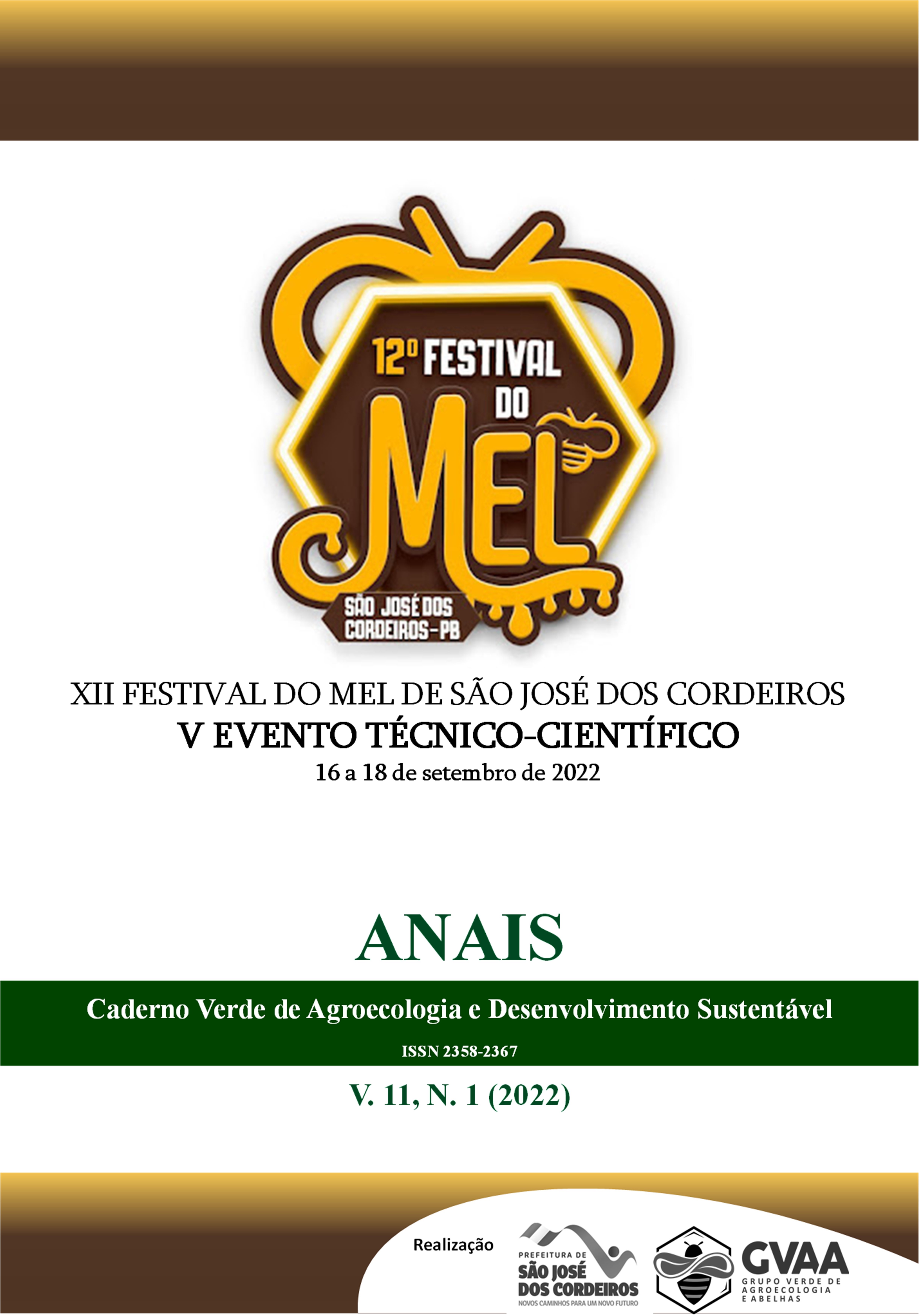Radio to strengthen rural activities
the example of the Matutando Solos and Agroecologia Program
Keywords:
Rural communication, educommunication, Matutando, radio, beekeepingAbstract
Bees and their products are known throughout the world, where they are a significant consumer preference and evident as a means of subsistence for family farmers, because the activity offers besides honey and propolis, other products, which can be a source of income for families, besides providing complementary services such as pollination. Bees improve farming, food and nutritional security, and provide traditional medicines. However, there is still a need for information, such as soil use and management practices, beekeeping plants, activity dynamics, commercialization, and the expertise of the locals. The dissemination of information is essential to promote the activity, to improve practices, and to potentiate the local market, but it is still inefficient or absent, and radio is an effective medium to enable this communication. The research aims to describe the radio experience of the Matutando Solos e Agroecologia Program in socializing information about beekeeping and meliponiculture, considering the socioeconomic relevance to family farming. Matutando is an avant-garde university extension program, allocated at the Center for Sustainable Development of the Semiarid, campus of Universidade Federal de Campina Grande, which has been talking on the radio for ten years, on 95 FM of Sumé, about soil conservation practices and the potentialities of the Caatinga biome, seeking to value local knowledge and know-how, with emphasis on productive activities in Cariri, Paraíba. In the technical part, research results of interest to farmers and beekeepers are divulged, such as the richness of the bee flora, composting, and the formation of seed banks. The framework Trilhas do Cariri presents the riches of the region, rescuing the potentialities for sustainable tourism, festivities, and traditions. The audience of Matutando and the recognition of the public highlight the relevance of a radio program as a proposal for educommunication and public policy to strengthen rural activities and sustainable rural development.
Downloads
Published
How to Cite
Issue
Section
License
Termo de cessão de direitos autorias
Esta é uma revista de acesso livre, em que, utiliza o termo de cessão seguindo a lei nº 9.610/1998, que altera, atualiza e consolida a legislação sobre direitos autorais no Brasil.
O(s) autor(es) doravante designado(s) CEDENTE, por meio desta, publica a OBRA no Caderno Verde de Agroecologia e Desenvolvimento Sustentável, representada pelo Grupo Verde de Agroecologia e Abelhas (GVAA), estabelecida na Rua Vicente Alves da Silva, 101, Bairro Petrópolis, Cidade de Pombal, Paraíba, Brasil. Caixa Postal 54 CEP 58840-000 doravante designada CESSIONÁRIA, nas condições descritas a seguir:
O CEDENTE declara que é (são) autor(es) e titular(es) da propriedade dos direitos autorais da OBRA submetida.
O CEDENTE declara que a OBRA não infringe direitos autorais e/ou outros direitos de propriedade de terceiros, que a divulgação de imagens (caso as mesmas existam) foi autorizada e que assume integral responsabilidade moral e/ou patrimonial, pelo seu conteúdo, perante terceiros.
O CEDENTE mantêm os direitos autorais e concedem à revista o direito de divulgação da OBRA, com o trabalho simultaneamente licenciado sob a Licença Creative Commons do tipo atribuição CC-BY.
O CEDENTE têm autorização para distribuição não-exclusiva da versão do trabalho publicada nesta revista.
O CEDENTE têm permissão e são estimulados a publicar e distribuir seu trabalho online (ex.: em repositórios institucionais ou na sua página pessoal) a qualquer ponto antes ou durante o processo editorial, já que isso pode gerar alterações produtivas, bem como aumentar o impacto e a citação do trabalho publicado.








